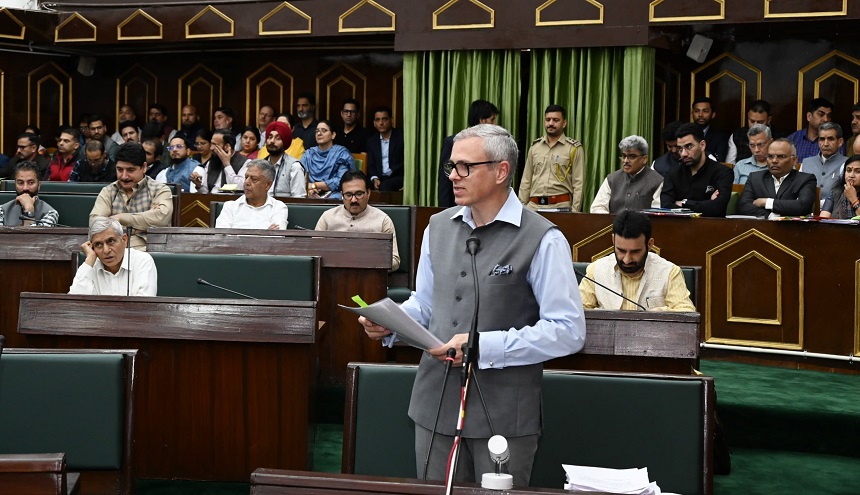Jammu & Kashmir Received Fewer Assets in Split with Ladakh: Omar Abdullah
Jammu, India: Jammu & Kashmir Chief Minister Omar Abdullah has acknowledged that the distribution of assets and liabilities between the Union Territories (UTs) of Jammu & Kashmir and Ladakh has resulted in J&K receiving a relatively smaller share of assets. He clarified that the apportionment was carried out through mutual agreement based on recommendations from an advisory committee formed under the Jammu and Kashmir Reorganisation Act, 2019.
Fair Distribution or Discrimination?
Speaking in the J&K Assembly, Omar Abdullah addressed concerns raised by National Conference (NC) member Tanveer Sadiq, who alleged that Jammu & Kashmir was unfairly treated in the allocation process. In response, Abdullah admitted that J&K had received fewer assets but emphasized that the division was conducted through a process of consultation rather than confrontation.
“It is true that Jammu & Kashmir has received a relatively smaller share of assets. However, our focus was on resolving the matter through agreement rather than prolonged disputes,” Abdullah stated.
He further drew comparisons with Andhra Pradesh and Telangana, noting that despite their separation years ago, the two states are still engaged in legal battles over asset distribution. “We did not want to go down that path. Our goal was to ensure a smooth division without unnecessary conflict,” he asserted.
J&K’s Guesthouse Loss and New Bhavan Construction
A significant portion of the Chanakyapuri Guesthouse in Delhi has been allocated to Ladakh, leading to a shortage of accommodation at J&K House in the capital. To address this issue, the J&K government has acquired 3,179.58 square meters of land on a perpetual leasehold basis from the Delhi Development Authority (DDA) in Dwarka, where a new J&K Bhavan complex is planned.
“This location was chosen due to its accessibility and proximity to other state bhavans,” Abdullah stated, adding that the government is also exploring possibilities to create additional accommodations at Prithviraj Road, Delhi.
Encroachments on J&K’s Assets in Delhi
Abdullah also raised concerns over encroachments on properties owned by the Jammu & Kashmir government in Delhi. He disclosed that a property measuring one kanal and 11.2 marlas was illegally occupied by unauthorized individuals who had no official sanction from the Estates Office or the Resident Commission in Delhi. “These individuals have been successfully evicted, and the Resident Commissioner has taken back possession of the property,” he confirmed.
Financial Liabilities and Pending Transfers to Ladakh
In addition to assets, financial liabilities have also been a contentious issue. Abdullah revealed that Rs 2,504.46 crore in liabilities are to be transferred to Ladakh. The matter has been formally raised with the Ministry of Home Affairs and the Ladakh administration to ensure a fair resolution.
Background: The J&K and Ladakh Bifurcation
On October 31, 2019, Jammu & Kashmir was officially bifurcated into two separate Union Territories—J&K and Ladakh—following the abrogation of Article 370. While the reorganization was intended to streamline governance and development, issues surrounding asset distribution, liabilities, and administrative control continue to create debates and challenges for both UTs.
Bottom-Line: A Need for Greater Transparency?
The issue of asset distribution remains a point of contention in J&K, with political voices like Omar Abdullah emphasizing the need for fairness and clarity in the process. While the government claims that all steps have been taken through mutual understanding, concerns over discrimination, inadequate infrastructure allocation, and financial disparities persist. Moving forward, transparency and equitable resource distribution will be crucial in ensuring a stable future for both J&K and Ladakh.



